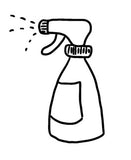Minimising the impact of bedwetting
Bedwetting can be very disruptive – not only for your child, but also for you. The additional laundry loads, cleaning urine stains from mattresses, being woken up in the night…. never mind the emotional anxiety and worrying if it will ever stop. Here’s some of our key advice for how to take control of the situation and minimise the impact that bedwetting has on you and your family.
Protecting
One of the major tolls of bedwetting is the increased laundry - having to change a full set of bedding in the middle of the night isn’t fun. One of the easiest ways to deal with this is to utilise a waterproof bed sheet. This helps to protect the bedding, as well as the mattress, and makes any night time incidents much easier to deal with. A waterproof bed sheet placed on top of the bed is much easier to quickly change when accidents occur. If you really want to make life easier, invest in a couple of waterproof bed sheets so that you can simply replace the sheet with a fresh, dry one in the night as required.

Cleaning
A lingering smell of urine can be especially problematic if bedwetting happens often. Cleaning up these stains with an odour removing cleaner will make the bedroom feel much fresher and more pleasant, creating a positive atmosphere for dealing with the issue.

Preventing
Ultimately, the best way to minimise the impact of bedwetting is to solve the issue itself. Bedwetting alarms have been proven to have the best long-term success rates for dry nights. We don’t recommend wearing pull-ups alongside an alarm, so make use of the bed sheet and cleaner discussed above, to reduce the impact of wetting. Although this may seem like more effort, it is worth it in the long run when dry nights are achieved!

